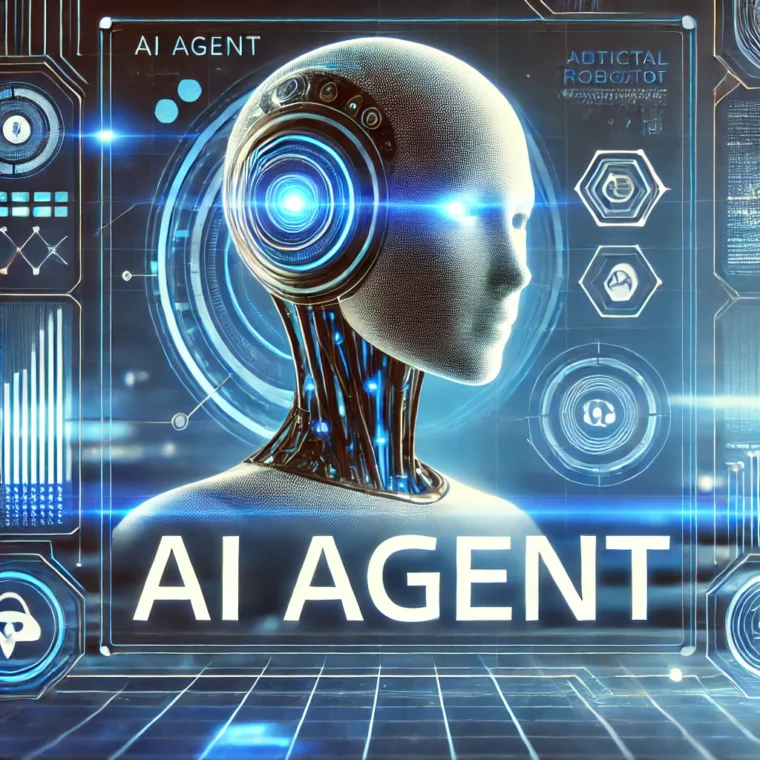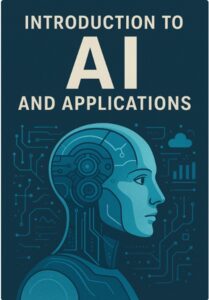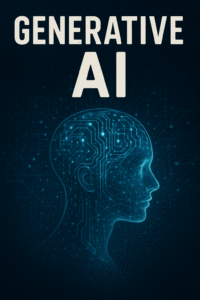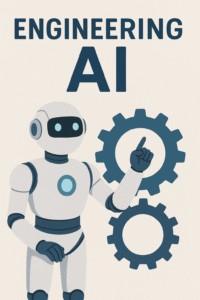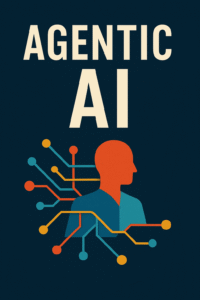Introduction: The Emergence of Agentic AI
The landscape of Artificial Intelligence (AI) is constantly evolving, and AI agents are at the forefront of this transformation. Known as Agentic AI, these systems are unlike traditional AI, which operates based solely on predefined rules and responses. AI agents exhibit autonomy, enabling them to make decisions, plan actions, and learn from experience to achieve specific goals. With the potential to revolutionize industries and streamline complex tasks, AI agents represent a significant shift towards intelligent systems that can independently manage, analyze, and optimize various facets of our daily lives.
The Rise of AI Agents: Market Growth and Potential
The recent boom in generative AI has set the stage for a meteoric rise in AI agents. Industry projections estimate the market for AI agents will grow from USD 5.1 billion in 2024 to an impressive USD 47.1 billion by 2030. This remarkable growth, characterized by a compound annual growth rate (CAGR) of 44.8%, is fueled by breakthroughs in generative AI, enabling Agentic AI to perform increasingly complex tasks with minimal human intervention.
What Sets AI Agents Apart from Traditional AI Models?
AI agents, equipped with advanced “chaining” capabilities, are uniquely positioned to break down complex tasks into manageable steps, thereby offering an unprecedented level of adaptability and problem-solving. Key features that set them apart include:
- Enhanced Autonomy: Unlike traditional AI models, AI agents can independently assess situations, make decisions, and execute tasks without human oversight.
- Superior Problem-Solving: AI agents leverage real-time data and machine learning to tackle intricate problems across various fields, from logistics to cybersecurity.
- High Adaptability: These agents can adjust to changing conditions, environments, and user preferences, ensuring that their actions remain relevant and effective over time.
- Deep Personalization: Through adaptive learning, AI agents can personalize their responses and actions, tailoring solutions to individual users’ needs.
- Unmatched Scalability: AI agents can handle large-scale operations and manage multiple tasks simultaneously, offering efficiency and consistency.
- Advanced Communication Skills: With natural language processing (NLP) capabilities, AI agents can understand, process, and respond to human language, facilitating seamless interactions with users.
Real-World Applications of AI Agents
The versatility of AI agents opens up a world of applications, transforming industries and redefining operational efficiency. Here are some examples:
- Business Operations: AI agents autonomously manage supply chains, optimize inventory, and enhance logistics, thereby reducing operational costs and improving efficiency.
- Software Development: In the tech industry, AI agents have the potential to design, write, debug, and oversee the entire software lifecycle, speeding up development while ensuring quality.
- Cybersecurity: By monitoring network traffic, detecting threats, and responding in real time, AI agents bolster security while minimizing human intervention.
- Scientific Research: AI agents can design and conduct experiments, analyze complex data, and generate new hypotheses, accelerating innovation in fields like drug discovery and materials science.
- Finance: From managing investment portfolios to making trading decisions, AI agents leverage real-time data to maximize returns and enhance market efficiency.
- Human Resources: AI agents automate recruitment, training, and talent management, streamlining HR processes and improving workforce development.
World Leaders on the Future of AI Agents
Prominent tech leaders envision AI agents as the future of AI technology, transforming how we interact with machines and navigate the complexities of modern life:
“Helpful Agents are poised to become AI’s killer function.”
— Sam Altman, CEO of OpenAI
“AI Agents will become our digital assistants, helping us navigate the complexities of the modern world. They will make our lives easier and more efficient.”
— Jeff Bezos, Founder and Executive Chairman of Amazon
“AI Agents will become the primary way we interact with computers in the future. They will be able to understand our needs and preferences and proactively help us with tasks and decision-making.”
— Satya Nadella, CEO of Microsoft
Career Opportunities in AI Agents
As AI agents gain traction, the demand for skilled professionals to build, deploy, and maintain these systems is soaring. Here are some career paths with significant growth potential:
- AI Engineer: Focuses on creating algorithms and models that enable AI agents to act independently and learn from interactions.
- Machine Learning Engineer: Develops and refines machine learning models that enhance the decision-making capabilities of AI agents.
- Data Scientist: Works on the data collection, analysis, and processing required to fuel intelligent behavior in AI agents.
- NLP Specialist: Designs language models that allow AI agents to understand and respond to human speech.
- AI Product Manager: Strategizes, plans, and oversees the development of AI agent-based products, ensuring alignment with business goals.
Roadmap to Expertise in AI Agents
For those aspiring to become specialists in AI agents, a structured roadmap is essential. Here’s a guide to mastering the skills required:
Step 1: Master the Fundamentals of Computer Science
- Focus Areas: Programming (Python, Java), algorithms, and data structures.
- Resources: Coding bootcamps, online courses, or university programs.
Step 2: Deepen Your Understanding of Machine Learning and Generative AI
- Focus Areas: Core ML algorithms, supervised/unsupervised learning, and generative models.
- Resources: Courses from Coursera, Udacity, or AI-focused books.
Step 3: Specialize in Key AI Agent Skills
- LangChain and Prompt Engineering: Critical for building conversational agents.
- Reinforcement Learning (RL): Equips AI agents with sequential decision-making skills.
- Autonomous System Design: Essential for creating agents with high levels of autonomy.
Step 4: Master Tools for Building and Deploying AI Agents
- Key Tools: LangGraph, Autogen, and CrewAI.
- Resources: Hands-on tutorials, official documentation, and certification programs.
Step 5: Build Projects and Gain Practical Experience
- Focus: Develop end-to-end projects, from simple chatbots to complex, multi-agent systems.
- Resources: Participate in hackathons, Kaggle competitions, or internships for real-world experience.
Step 6: Engage in Continuous Learning and Networking
- Stay Updated: Follow AI research, attend conferences, and join professional communities to stay ahead.
Conclusion: Embrace the Future with AI Agents
AI agents represent the next frontier in AI, offering transformative benefits across industries and creating new possibilities for autonomous, intelligent systems. By following a clear roadmap and gaining hands-on experience, professionals can unlock career opportunities in this rapidly growing field and help shape the future of AI.
AI agents are more than just a technology—they are a vision of the future where intelligent, proactive systems work alongside humans to make life more efficient, personalized, and secure.
Popular Programs on Ai Agents
- AnalyticsVidhya_Agentic_AI_ Pioneer_Program
- An Introduction to AI Agents | Udemy
- Multi AI Agent Systems with crewAI – DeepLearning.AI
- Intro to AI Agents: Build an Army of Digital Workers with AI | Udemy
- Learn AI Agents | Coursera
- 10 Free Courses to Build AI Agents in 2024
- AI Agents in LangGraph
References

